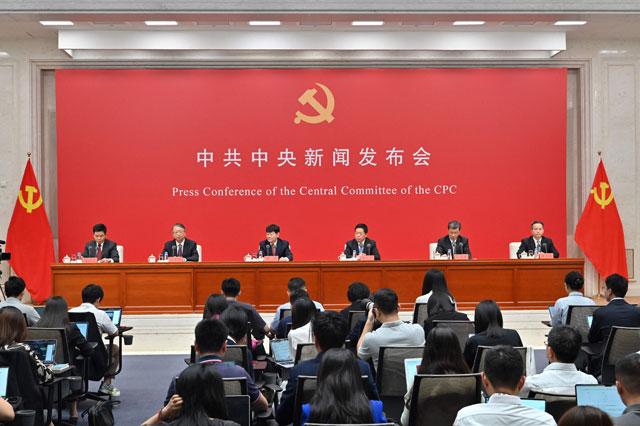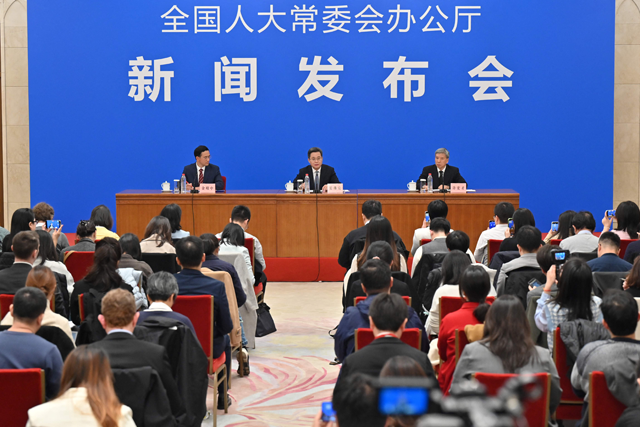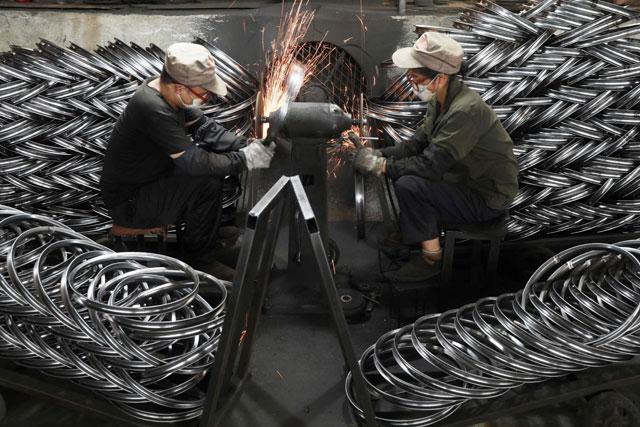You are here
Beijing vows to ease local gov't debt woes after key meeting
By AFP - Jul 21,2024 - Last updated at Jul 21,2024

Offcials attend a press conference of the Central Committee of the CPC in Beijing on Friday (AFP photo)
BEIJING — Chinese officials pledged recently to help ease debt pressure on local governments through reforms to the tax system, after a key political gathering in the capital focused on jumpstarting the faltering economy.
All eyes were on how this week's Third Plenum of the Communist Party in Beijing, attended by President Xi Jinping, might tackle the deepening economic malaise.
But few new policies were announced as the meeting wrapped up Thursday, with officials pledging to tackle "risks" in the economy.
The world's second-largest economy is grappling with a property debt crisis, weakening consumption and an ageing population.
Adding further strain, local governments in China face a ballooning debt burden of $5.6 trillion, according to the central government, raising worries about wider economic stability.
Beijing sought to allay concerns at a Friday press conference featuring a lineup of officials.
"In response to the financial difficulties of local governments and basic organisations, it is proposed to refine the financial relationship between the central and local governments," said Han Wenxiu, an official responsible for financial and economic policy planning.
Authorities would seek to expand local sources of tax revenue and limit expenditure requirements on local governments that violated "regulations", Han said, without sharing specifics.
Fitch lowered its outlook on China's sovereign credit rating in April, citing soaring general government debt that it forecast would reach 61.3 per cent of the country's gross domestic product this year.
Han also sought to allay fears over the struggling property market, long a key driver of national growth but now grappling with spiraling debt at some of its leading firms.
He said there had been recent "positive changes in the real estate market", noting that the next step was "eliminating the disadvantages of the previous model of high debt".
Earlier this week, China posted official statistics showing the economy grew by just 4.7 per cent in the second quarter of the year.
It represented the slowest rate of expansion since early 2023, when China was emerging from a crippling zero-COVID policy that strangled growth.
Analysts polled by Bloomberg had expected 5.1 per cent.
Beijing has said it is aiming for 5 per cent growth this year — enviable for many Western countries but a far cry from the double-digit expansion that for years drove the Chinese economy.
Related Articles
BEIJING — China last week unveiled some of its most ambitious plans in years to lift local government debt and boost its economy, following
BEIJING — China's leadership vowed Thursday to "resolve risks" plaguing the economy, state media said, but were yet to offer any concrete s
BEIJING — China posted lower than expected growth in the second quarter on Monday, with all eyes on how top officials gathering for a key me


















